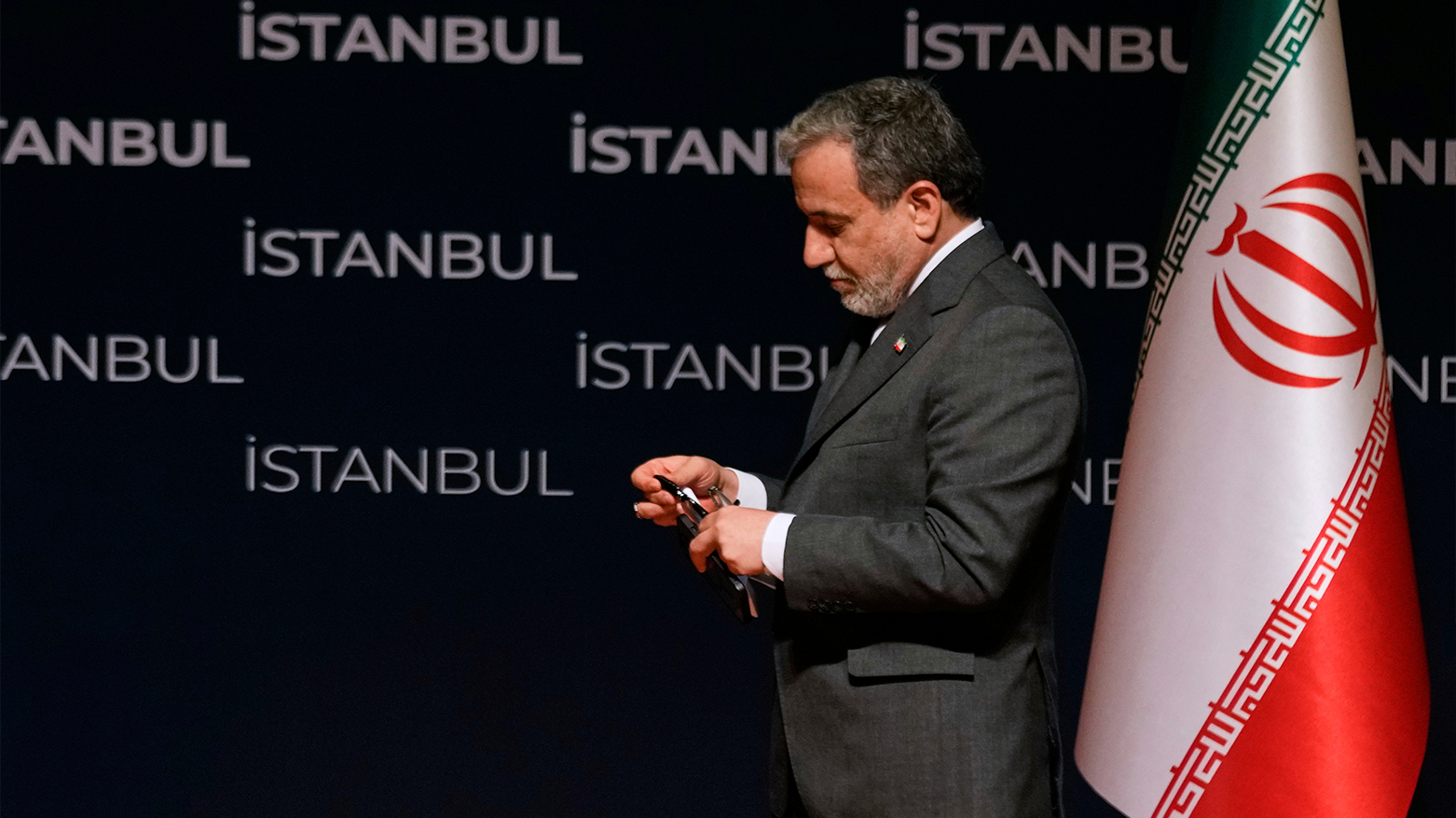Iran's Foreign Minister Reveals Assassination Attempt, Secret Diplomacy Behind Ceasefire With Israel
Iran FM Araghchi reveals assassination attempt on his home during Israel war, with bomb hitting neighbor's house. Confirms Hamas leader Haniyeh was killed in Tehran, sparking internal debate over military response. 'Perpetrators arrested,' he states.

ERBIL (Kurdistan24) – Iranian Foreign Minister Abbas Araghchi has disclosed dramatic details surrounding last month’s war with Israel, including an attempted assassination against him, behind-the-scenes negotiations that led to a ceasefire, and high-level disputes over military responses to the assassination of senior Hamas leader Ismail Haniyeh in Tehran.
In statements published by Iran’s Tasnim News Agency, Araghchi said a bomb was planted in front of his residence during the conflict. “It targeted the house across from mine. The perpetrators have been arrested,” he confirmed. He also revealed that drones repeatedly flew overhead during his official trips to Turkey.
Tehran's Ceasefire from a 'Position of Strength'
Speaking about the cessation of hostilities, Araghchi said Iran's Supreme National Security Council had made a “strategic decision” by the eighth or ninth day of the war to accept an unconditional ceasefire—if Israel submitted a formal request.
“This decision came from a position of strength,” he emphasized. “Around 1:00 a.m., we received contacts that Israel was ready for a ceasefire. After consulting with relevant institutions, we verified that the conditions aligned with our strategic decision.”
Following confirmation, Iran agreed to halt its operations—on the condition that Israel also immediately ceased hostilities.
Confusion Over Ceasefire Timing
A miscommunication nearly jeopardized the truce, Araghchi admitted. “There was confusion between me and the armed forces—some believed the ceasefire would start at 4:00 a.m. GMT, so attacks continued until 7:30 a.m. Tehran time,” he said. “The issue was resolved by a phone call later in the day.”
He added that later that evening, Israel falsely accused Iran of violating the ceasefire. “They claimed we fired missiles, but it was a baseless accusation,” he said. “I immediately sent a message to U.S. Special Envoy Steve Witkoff saying Israel was fabricating pretexts. If they acted, we would respond harder than before.”
Shortly after, U.S. President Donald Trump intervened. “He tweeted and ordered pilots to stand down. That revealed the entire sequence had been coordinated with the Americans from the beginning,” Araghchi stated.
Haniyeh Assassination and Military Response
Araghchi also confirmed the assassination of Hamas political bureau chief Ismail Haniyeh in Tehran. The killing occurred just as newly elected President Masoud Pezeshkian had taken office, even before his cabinet had been formed.
“In a meeting with the Supreme National Security Council and the president, we all agreed a response was necessary,” he said. “But there was disagreement between political and military leadership over the method and timing of retaliation.”
Ultimately, the leadership agreed to first ensure defense readiness before launching any counter-operation.
Avoiding Full-Scale War and Dealing With Deception
Araghchi explained that Iran had been pushed to the brink of full-scale war on three separate occasions: following Haniyeh’s assassination, the “True Promise 2” operation, and the fall of the Syrian government. Yet diplomacy, he insisted, prevented total escalation.
Addressing claims that Iran had been misled by negotiating with the United States before the war, Araghchi said, “We lost nothing. On the contrary, we gained significantly—most importantly, we demonstrated our legitimacy to our people and the international community.”
He dismissed criticism that diplomacy delayed or provoked conflict. “Without negotiations, war might have come sooner,” he concluded.